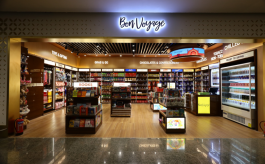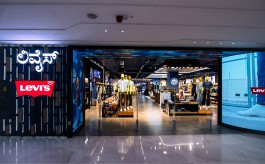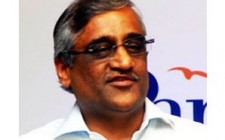After metros, BigBasket sets it sight on tier-II cities
June 08, 2015
Plans to launch in around 50 smaller cities in a year's time; to launch pilot from Mysuru this month
 Hari Menon, chief executive officer of online grocery retailer BigBasket.com, is in a hurry.
Hari Menon, chief executive officer of online grocery retailer BigBasket.com, is in a hurry.As he speaks over phone, he says there is a huge backlog of emails for him to vet, and speaks so fast, it gets difficult to keep pace.
The reason is clear. The Bengaluru-headquartered entity, launched in December 2011, began operations in the National Capital Region, Pune and Chennai last month and would soon be expanding into Ahmedabad and Kolkata.
And, it is ready with a plan to go deeper into the country, by expanding into tier-II cities. It looks at using its existing warehouses in the eight large cities where it already has a presence to cater to the neighbouring smaller ones.
Menon said the first of this model would be flagged off on June 15 from Mysuru and gradually extend to Coimbatore, Madurai and Trichy in Tamil Nadu, and Vijayawada and Visakhapatnam in Andhra. "Over the next 12 months, we want to reach 50 smaller cities,†he told Business Standard.
The company follows a hub-and-spoke model for the metros, to be put into play for expansion into smaller cities as well. For instance, it has a large warehouse in this city at Dwarka in the southwest, which caters to orders from Delhi and also supplies to the two smaller hubs in Noida and Gurgaon.
For last-mile delivery, BigBasket has a fleet of mini vans that deliver groceries and vegetables under a time slot chosen by the consumer.
The consignments go to the hubs two times a day and are redistributed via the smaller delivery vehicles through an automated algorithm, which assigns tasks for the vans based on orders and the clusters. Each vehicle delivers up to nine orders in one slot. The consumer has the option to choose from four time slots, two in the morning and two in the evening.
Menon, who terms the response in Delhi the best so far, says BigBasket is delivering almost 11,000 orders each day in the region, despite the fact that the operations were launched only three weeks ago. "What would have taken us eight to 12 months elsewhere we have hit in the third week itself,†he said. He attributes this to the company's strategy to start marketing from day one as compared to previous launches, where the firm took time to fine-tune operations before launching the consumer campaigns.
It is also deploying what it has learnt from previous launches, helping to scale up faster. For instance, Menon reveals in its initial days, BigBasket was combating a perishability challenge. A significant portion of the goods it delivers — fruits, vegetables, milk-based products, confectionery — have a low shelf life. The company addressed that issue with freezers and chillers at each stage of its procurement, processing and delivery. Its warehouses have three large cold rooms with three varying temperature chambers — +5, -5 and -25 degrees (for ice-creams). Vehicles in which the last-mile delivery happens also have DC-powered chillers and freezers. An order takes a maximum of 2.5 hours to get delivered, to ensure against any thawing. "In that sense, we are the closest to the'farm to fork' concept,†said Menon.
Menon's biggest challenge is personnel. It has around 1,800 people, about 70 per cent being blue-collar workers. The company is looking at sourcing 500-1,000 people from tier-II cities and looking at options to provide subsidised accommodation and food to attract and retain them.
BigBasket aims to close this financial year with a revenue of around Rs 1,000 crore. It raised about Rs 200 crore last September from investors, including Helion Ventures and Zodius Capital. Menon said the Bengaluru operations were already in the green.
"We expect the overall company to be profitable in about 24 months.â€
PLANS AHEAD
• Plans to enter Kolkata and Ahmedabad soon
• To use existing warehouses to cater to the neighbouring smaller ones — model to be flagged off from Mysuru
• Will gradually extend to Coimbatore, Madurai and Trichy in Tamil Nadu, and Vijayawada and Visakhapatnam in Andhra
• Expects the company to be profitable in about 24 months
Advertisement








